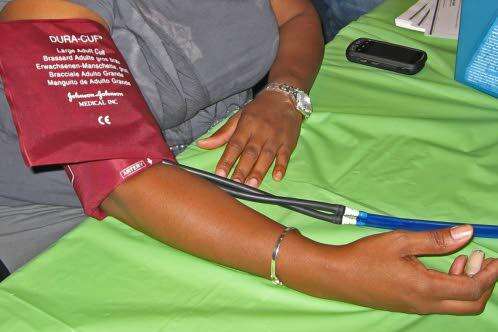Could Cutting Calories Be Affecting Your Mood? New Research Links Low-Calorie Diets to Increased Depression Risk

South Africans are increasingly focused on health and wellness, with many turning to low-calorie diets to manage their weight. But new research is raising concerns about a surprising potential side effect: a link between calorie restriction and increased depressive symptoms. This isn't about blaming healthy eating; it's about highlighting the crucial connection between nutrition, mental health, and overall well-being. Let's dive into the details of this study and what it means for you.
The Research Findings: A Closer Look
The study, recently published in [Insert Journal Name Here - if available, otherwise omit], investigated the relationship between calorie-restrictive diets and mental health outcomes in a large cohort of participants. Researchers found a statistically significant correlation between individuals adhering to low-calorie diets (typically defined as consuming significantly fewer calories than their daily energy expenditure) and a higher prevalence of depressive symptoms. It’s important to note that correlation doesn't equal causation, but the findings warrant serious consideration.
Why Might This Be Happening? Exploring the Potential Mechanisms
So, what could be behind this connection? Several factors may be at play:
- Nutrient Deficiencies: Restrictive diets, even if seemingly “healthy,” can inadvertently lead to deficiencies in essential nutrients like vitamins, minerals, and healthy fats. These nutrients are vital for brain function and mood regulation. For example, deficiencies in Vitamin D, B vitamins, and Omega-3 fatty acids have been linked to depression.
- Hormonal Imbalances: Calorie restriction can disrupt hormonal balance, including impacting thyroid function and levels of neurotransmitters like serotonin and dopamine – all of which play a key role in mood.
- Gut Microbiome Disruption: Our gut microbiome (the trillions of bacteria living in our digestive system) is increasingly recognized as having a profound impact on brain health. Restrictive diets can alter the composition of the gut microbiome, potentially influencing mood and mental well-being.
- Psychological Factors: The act of constantly restricting food can be stressful and lead to feelings of deprivation, which can contribute to negative emotions. The focus on weight and body image can also exacerbate existing mental health concerns.
What Does This Mean for Your Diet & Mental Health?
This research shouldn’t discourage healthy eating, but it does emphasize the importance of a balanced and sustainable approach. Here are some key takeaways:
- Prioritize Nutrient Density: Focus on consuming whole, unprocessed foods that are packed with nutrients.
- Don’t Deprive Yourself: Extreme calorie restriction is rarely sustainable and can be detrimental to both your physical and mental health.
- Listen to Your Body: Pay attention to hunger and fullness cues. Don’t ignore cravings, but learn to satisfy them in a healthy way.
- Seek Professional Guidance: Consult with a registered dietitian or nutritionist to develop a personalized eating plan that meets your nutritional needs and supports your overall health.
- Don't Neglect Mental Health Support: If you’re struggling with your mental health, don't hesitate to reach out to a therapist or counselor. Mental health is just as important as physical health.
The Bottom Line
The link between low-calorie diets and increased depression risk is a complex one. While more research is needed to fully understand the underlying mechanisms, this study serves as a valuable reminder that our physical and mental health are inextricably linked. Focusing on a balanced, nutrient-rich diet, combined with adequate mental health support, is the key to achieving true well-being.






